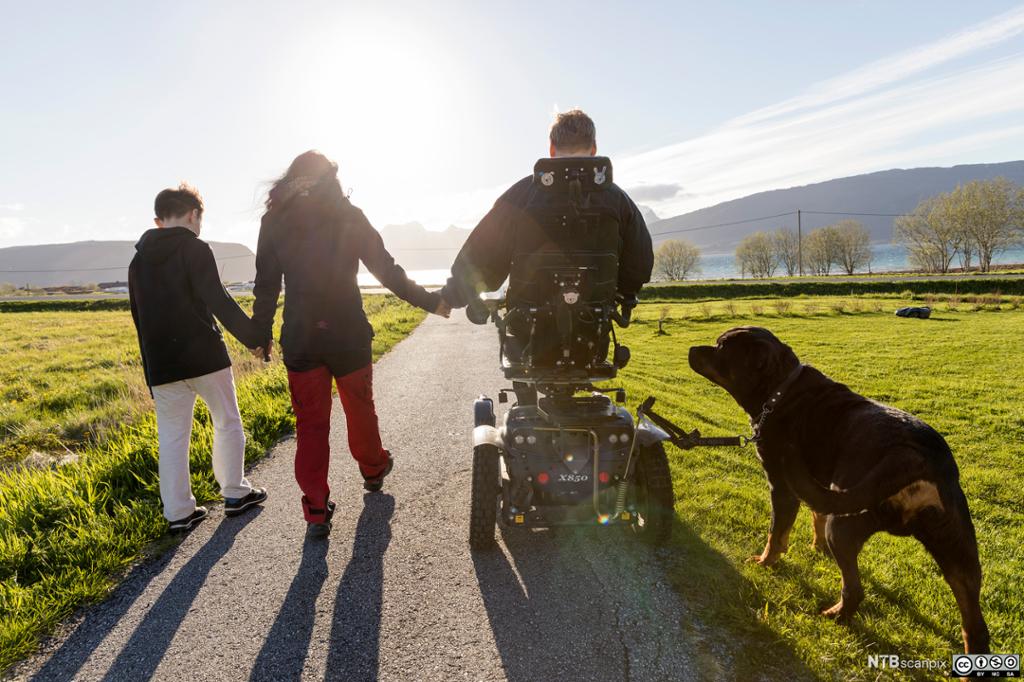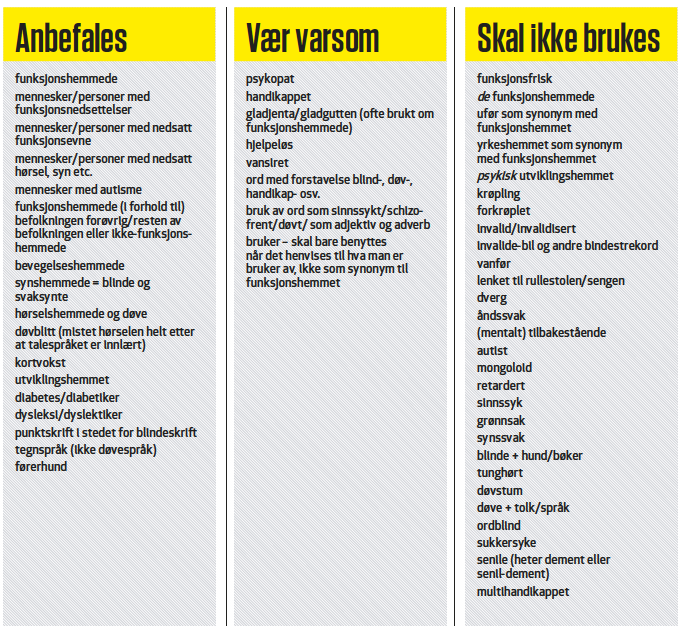Talking About Disabilities

Words convey images and feelings and influence the way people think. The choice of negative language when describing disabled people can injure feelings and create barriers to understanding.
Read through the terms in the table and then do the tasks which follow.
Recommended Terms | Recommended Norwegian Terms | Terms to Avoid | Norwegian Terms to Avoid |
|---|---|---|---|
disabled people |
| the disabled, the handicapped |
|
has + name of impairment |
| afflicted by, suffers from |
|
disabled person |
| crippled, invalid, physically handicapped |
|
wheelchair user |
| confined to a wheelchair |
|
person with cerebral palsy |
| spastic |
|
non-disabled |
| able-bodied |
|
person with mental condition |
| mental patient, insane, mad |
|
person with hearing impairment |
| deaf and dumb, deaf mute |
|
blind people, people with visual impairment |
| the blind |
|
person with restricted growth or short stature |
| dwarf midget |
|
seizures |
| fits,spells,attacks |
|
What are the equivalent terms in Norwegian? Fill in the table showing the recommended Norwegian terms and those which should be avoided.
- What is the difference between the terms, "disabled people" and "people with disabilities"? Is the one to be preferred over the other?
- Many of the terms to be avoided are often found in daily use and in the media. Search the Internet for examples (use some of the words to be avoided as search words) and discuss whether the examples you find are used in a derogatory way.
My Left Foot by Christy Brown, My Left Foot - Novel, Film and Art.
